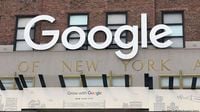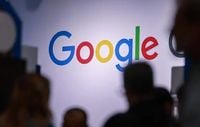The U.S. government is pushing for significant changes in the tech landscape, as hearings in Washington, D.C. have commenced regarding an antitrust case against Google. Led by Judge Amit Mehta, the proceedings aim to address allegations that Google has unlawfully monopolized the search engine market, with potential ramifications for the company’s flagship products like the Chrome browser.
According to reports from Bloomberg, the Department of Justice (DoJ) is advocating for drastic measures, including the forced sale of the Chrome browser, as well as the separation of Android and the Google Play Store into independent entities. This proposal is part of a broader strategy to dismantle what the government claims is an unfair competitive advantage held by Google.
At the hearings, which began on April 21, 2025, U.S. Attorney David Dalkvist argued that Google’s control over its search engine and associated products has allowed it to dominate the market unfairly. He noted that Google has spent billions to maintain its monopoly, citing a staggering $26.3 billion spent in 2021 to secure default search placements on various devices.
Google, however, has vehemently opposed these measures, labeling them as “extreme.” The company contends that such actions would harm users and unfairly benefit competitors. In defense of its practices, Google insists that it has “honestly earned” its position in the market. A representative from Google argued that selling Chrome could jeopardize the functionality of numerous third-party services that rely on its open-source code, such as those from Samsung and Opera.
Adding a new twist to the proceedings, Nick Tёrli, the head of OpenAI’s ChatGPT product division, expressed the company’s interest in acquiring Chrome should the court compel Google to sell it. During his testimony, Tёrli emphasized that access to Google’s search data would significantly accelerate the development of OpenAI’s products, including their AI-driven search tool, SearchGPT. He stated, “Yes, we would buy, as would many other companies,” when asked about OpenAI’s potential acquisition of Chrome.
OpenAI’s interest in Chrome reflects a broader competitive landscape in which tech giants vie for dominance in the burgeoning AI market. Tёrli pointed out that Google’s exclusivity agreements with companies like Apple, which reportedly earn billions from Google for maintaining its status as the default search engine on Safari, further entrench Google’s market power.
Judge Mehta has set a timeline of three weeks for the hearings, during which evidence and arguments will be presented to determine the appropriate course of action. This case is being referred to as the “decade process,” marking a significant moment in U.S. regulatory efforts to address monopolistic practices in the tech industry.
Moreover, the DoJ’s proposals include measures to prevent Google from entering into exclusive agreements that could hinder competition. If the court finds in favor of the government, it could lead to the most substantial restructuring of a tech company since the breakup of AT&T in the 1980s. Such a decision would not only impact Google’s operations but could also reshape the entire tech ecosystem.
Google’s legal team has countered that the proposed remedies would stifle innovation and ultimately harm consumers. They argue that forcing the company to divest its key products would diminish the quality of services offered to users. The tech giant has also indicated a willingness to adjust its agreements with partners to foster competition, although it remains resistant to the more drastic measures suggested by the government.
As the hearings progress, the implications of the outcome are vast. Should the court mandate the sale of Chrome or other assets, it would signal a new era of regulatory scrutiny on tech giants and their business practices. The potential for OpenAI or other companies to acquire Chrome could fundamentally alter the competitive landscape in the search engine market.
In the context of the ongoing antitrust discussions, Tёrli highlighted the challenges faced by OpenAI in penetrating the Android ecosystem, which is heavily influenced by Google’s dominance. He noted that while OpenAI has successfully integrated ChatGPT into Apple’s iPhone, it struggles to gain similar traction with Android devices due to Google’s existing agreements with manufacturers.
In a world where AI is becoming increasingly integral to user experience, the ability to access current and reliable search data is paramount. Tёrli stressed that without it, AI systems risk providing outdated or inaccurate information, a phenomenon known as “hallucination” in AI terminology. He stated, “It is no longer a super-assistant if it does not know current facts or invents something.”
As the hearings continue, the tech community and consumers alike are watching closely. The outcome could redefine not just Google’s business model, but also the future of search technology and AI development. With more than 30 state attorneys general joining the case, the stakes are high for both the government and Google. The next few weeks will be crucial in determining the future of one of the world’s largest tech companies and the broader implications for the industry.
In summary, the ongoing antitrust case against Google is poised to have far-reaching effects on the tech landscape, with potential sales of key assets like Chrome being a focal point. As OpenAI expresses interest in acquiring Chrome, the court's decisions could reshape competition in the search engine market and influence how users interact with technology in the future.









